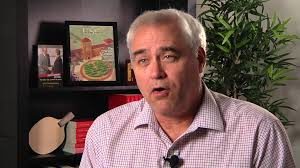 |
| Paul Gillis |
Paul Gillis:
Tax reform will lower the tax burden on lower- and middle-income people, while leaving the top rates intact. China has a progressive tax system with rates topping out at 45% on income over 960,000 RMB (US$143,000).
Foreigners used to get special treatment. While China taxes its own people on worldwide income, expatriates were only taxed on worldwide income after they had been resident for five years. The five-year period could be restarted by leaving China for 30 consecutive days or 90 days in a year. The 30 day “tax break” was the most popular tax provision in the world. Initial proposals would have revoked this rule, but the final version makes it even better. It retains the 30-day tax break but requires it only every six years. The 90 days in a year provision is gone.
More important for expatriates was the allowance of special exclusions from income for housing, education and home leave expenses. These expenses are very high in China. A home in the Yosemite development near the international schools rents for 55,000 RMB per month ($98,500 per year) and tuition for two kids at the International School of Beijing (ISB) runs 600,000 RMB ($89,500 per year). Local nationals did not get to exclude these costs.
The new law treats locals and expatriates the same. Both will obtain deductions for housing and education, but the benefit for rent is limited to 18,000 RMB (US$ $2,700) a year, far below what most expatriates pay. Education is limited to 12,000RMB (US$1,800) per child.
That will be a tax cut for locals, and a big tax increase for many expatriates. While it may be fair to treat foreigners and locals the same, fairness is in the eyes of the beholder.
Expatriates can stay under the old system through December 31, 2021. After that some expatriates will see staggering increases in tax. The expatriate living in Yosemite with two kids at ISB will see taxes increase as much as $82,000. Since most expatriates at that level are also tax equalized, the total cost increase to their companies is likely to be as much as $149,000. That will force many companies to reconsider whether they can keep these expatriates in China.More at the Chinaaccountingblog.
Paul Gillis is a speaker at the China Speakers Bureau. Do you need him at your meeting or conference? Do get in touch or fill in our speakers' request form.
Are you looking for more experts for managing your China risk? Do check out this list.
No comments:
Post a Comment